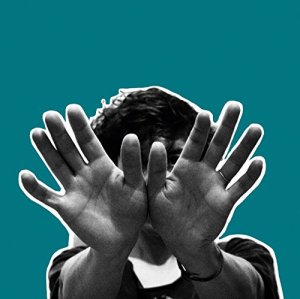 There are records that sing of the land, and those that wear traces of its soil beneath its author’s fingertips. Nature is a coarse thing, roughly marked by men and women who have known the abrasion of bark and nettle, skinned knees and chapped lips, seasons marked by sloe berries and the quick snap of frost. “In north-east Derbyshire,” Jim Ghedi begins at last, “I have worked my years.” Five songs in, they’re the first words spoken on A Hymn for Ancient Land, and the preceding tracks immediately feel less like instrumentals and more like their own wordless storytelling, the landscape rendered in strings and bows before anything as brittle as language is permitted to enter the fray.
There are records that sing of the land, and those that wear traces of its soil beneath its author’s fingertips. Nature is a coarse thing, roughly marked by men and women who have known the abrasion of bark and nettle, skinned knees and chapped lips, seasons marked by sloe berries and the quick snap of frost. “In north-east Derbyshire,” Jim Ghedi begins at last, “I have worked my years.” Five songs in, they’re the first words spoken on A Hymn for Ancient Land, and the preceding tracks immediately feel less like instrumentals and more like their own wordless storytelling, the landscape rendered in strings and bows before anything as brittle as language is permitted to enter the fray.
Continue reading at God Is In The TV
 When I talk about voices, I am gesturing around the room. It is understood that voices are non-white, female, queer, working class, trans, excluded or otherwise compromised narratives that require underlining in urgent reds and blacks.
When I talk about voices, I am gesturing around the room. It is understood that voices are non-white, female, queer, working class, trans, excluded or otherwise compromised narratives that require underlining in urgent reds and blacks. Regardless of whether anyone needed to hear this record, certainly no one needed to make it. It was famously documented in 2003 that, at one point, 43 percent of songs on U.S. radio (and 20 percent in the UK) were Neptunes-produced; the team of Pharrell Williams and Hugo Chavez were having to stagger releases, essentially to stop all their own songs competing against each other in the charts. With a hit-making machine already in place, the addition of Shae Haley to establish N.E.R.D. allowed Pharrell a playground for his more audacious off-cuts. On NO_ONE EVER REALLY DIES, their first output since 2010’s wildly inessential Nothing, the trio’s meandering avant-rap is somehow more encumbered by its lack of ideas than its lack of editorial savvy.
Regardless of whether anyone needed to hear this record, certainly no one needed to make it. It was famously documented in 2003 that, at one point, 43 percent of songs on U.S. radio (and 20 percent in the UK) were Neptunes-produced; the team of Pharrell Williams and Hugo Chavez were having to stagger releases, essentially to stop all their own songs competing against each other in the charts. With a hit-making machine already in place, the addition of Shae Haley to establish N.E.R.D. allowed Pharrell a playground for his more audacious off-cuts. On NO_ONE EVER REALLY DIES, their first output since 2010’s wildly inessential Nothing, the trio’s meandering avant-rap is somehow more encumbered by its lack of ideas than its lack of editorial savvy.